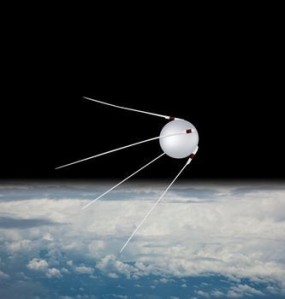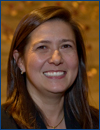Click on the title above to view on the CTE Central Blog website.
* * *
In 1959 C.P. Snow—novelist and research chemist—gave an influential lecture describing what came to be known as “The Two Cultures.” On one side, the humanists; on the other, the scientists. Between the two, he said, lay “a shameful gulf of mutual incomprehension.” It’s useful to remember that this was just after Sputnik. Shakespeare, some thought, would not help us win the space race.
We still feel the pull of this force today: academics on one side, career technical education on the other. But today CTE is integrated with academics and academics are infused in STEM-related fields. A sort of unified theory.
Here are a few good reads I was drawn to recently that not only bridge the cultural divide but explore how students learn and how schools work:
Geek Sublime: The Beauty of Code, the Code of Beauty by Vikram Chandra
In this book, the author, Chandra, “traces the connections between the two worlds of art and technology” with a focus on computer programming. Coding, he writes, “acts and interacts with itself, with the world. We already filter experience through software…which also, in turn, manipulates us. The embodied language of websites, apps, and networks writes itself into us.” As Paul Graham wrote in his book, Hackers and Painters, and his manifesto, “Hackers and painters have a lot in common–they are both makers.”
_____________
HOW WE LEARN: The Surprising Truth About When, Where, and Why It Happens By Benedict Carey
Is hard work really the key to success, especially for students? Or are taking a break, listening to music, and napping more important for learning? In light of Tiger Moms and the grueling schedule of high achievers or Outliers, this is the counterattack. “In our zeal to systematize the process,” the reviewer writes, “we have ignored valuable, naturally enjoyable learning tools like forgetting, sleeping, and daydreaming.”
_____________
Blackboard: A Personal History of the Classroom, by Lewis Buzbee
Buzbee was a student and is a teacher in the California public school system. “My concern,” he writes, “arises from my own history there, a concern that is more than test scores and global ‘workplace’ competition.” That concern is the public’s unwillingness to fund public education. “The most basic issue cannot be avoided: money.”
Buzbee won me over personally when he quoted one of my favorite books and characters (in this case Joe, the narrator) on his epigraph page: “I never wanted school to be over. I spent as much time in school as I could, pouring over books we were given, being around teachers, breathing in the school odors, which were the same everywhere and like no other. Knowing things became important to me, no matter what they were.” This is from Canada by Richard Ford. For Buzbee and Joe, the classroom blackboard is a window to the world.
_____________
Excellent Sheep: The Miseducation of the American Elite and the Way to a Meaningful Life by William Deresiewicz
With Robin Williams’ death, I couldn’t resist watching “Dead Poet Society” again. The scene we remember best is when the students stand on their desks and recite “O Captain! My Captain!” from Whitman to bid their poetry teacher farewell. He’d been fired for his unorthodox teaching methods and his emphasis on learning how to “seize the day” and follow your passion.
Are students who make it into Ivy-League schools—what the author considers our ‘elite class’—reading, listening to music, making friends, or falling in love? Or are they wasting their youth building resumes? Do they have to choose between learning and success?
“This book is a letter to my twenty-year old self,” the author writes. It is about “the kinds of things I wish that someone had encouraged me to think about when I was going to college—such as what the point of college might be in the first place.”
_____________
Getting Schooled: The Reeducation of an American Teacher by Garret Keizer
Speaking of unorthodox teachers: “The day of the ‘lone wolf’ teacher is done,” Keizer writes in Getting Schooled. “The notion that the very same teachers who made the greatest difference in my life need to be purged from the ranks is dispiriting enough, but the outrageous suggestion that the ‘brutal facts’ of education have more to do with the schoolhouse than with the larger society in which my students live is enough to make me want to spit. Or teach.”
As I was researching these publications and the topics they explore–blending the humanities and science, how students learn, and teaching outside the box–I felt optimistic. And I thought of the words a high school student sings in John Mayer’s song, “No Such Thing,“:
I just can’t wait til my 10 year reunion
I’m gonna bust down the double doors
And when I stand on these tables before you
You will know what all this time was for
If you have a book to recommend, let us know.








An interesting review in the New Yorker of “Excellent Sheep” followed by a discussion of how higher Ed works (or should or might work) to mold and prepare students for the workplace: http://www.newyorker.com/magazine/2014/09/01/poison-ivy
By: Tom Ross on August 31, 2014
at 11:10 am
Another interesting take on Deresiewicz’s “Excellent Sheep”–mentioned in this blog–by Steven Pinker in The New Republic: http://www.newrepublic.com/article/119321/harvard-ivy-league-should-judge-students-standardized-tests
By: Tom Ross on September 25, 2014
at 11:22 am